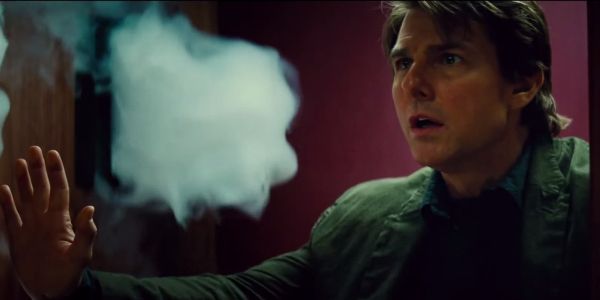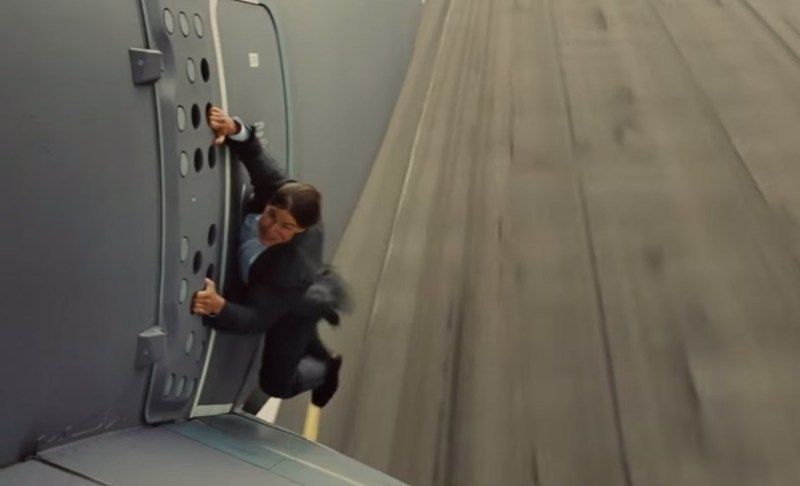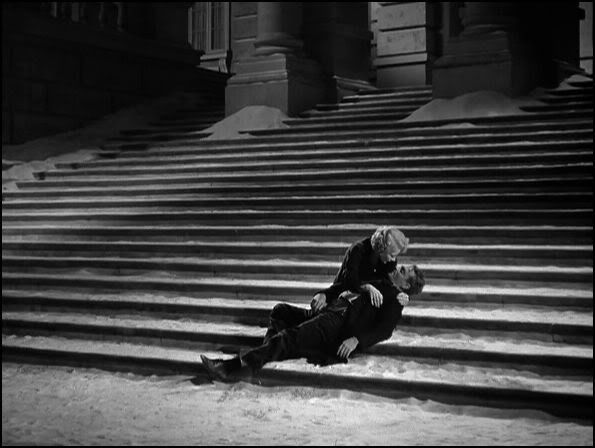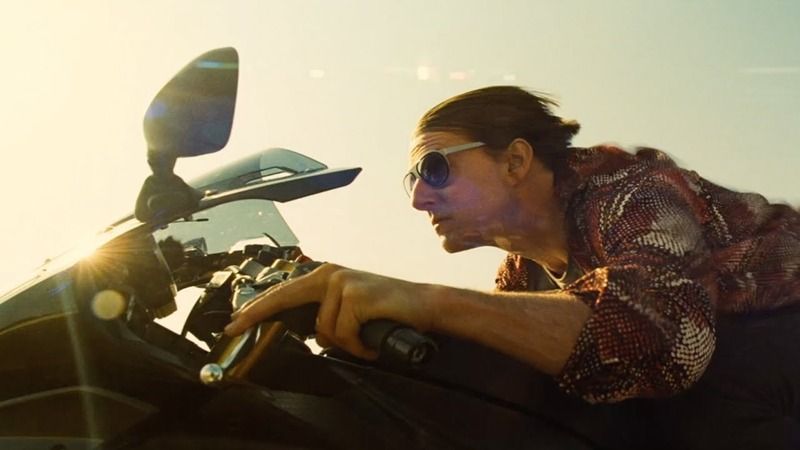If Jack Reacher was Christopher McQuarrie's resumé for getting the next Mission: Impossible gig, I say that he was clearly the perfect hire. While the Colin Trevorrows of the world are busy making cynical, redundant self-parodies of beloved franchises and the J.J. Abrams of the world are making hundred million dollar Rorschach tests, Christopher McQuarrie is legitimately building upon the legacy of someone like Raoul Walsh or John McTiernan with clever action set pieces and off-handed character humor while still delivering the "impossibly stacked-odds" thrills common to the M:I franchise. It is the perfect popcorn movie in that sense, but, like McTiernan, if you're willing to look closer, you may find even more.
It is neat to see several spy thrillers of the mid-2010s deal with the legitimacy and utility of espionage in the 21st century (I'm thinking also of Skyfall), and that is exactly where Rogue Nation begins. Immediately pitting a top secret conspiratorial shadow government against a top secret conspiratorial shadow agency is a clever bit of plotting in itself but as the movie progresses and the who-can-you-trust/who's-playing-whom dynamics are working themselves out in ever more labyrinthine twists and double-crosses, I began to realize that this is the true legacy of espionage. It could be cynical if we didn't have an investment in seeing Hunt succeed. But this sort of identification is what paints the "good guys" of espionage decidedly behind a nationalistic brush. How do we know who the good guys are? They work for us and are there to keep us safe. In an age that ironically has become increasingly dependent on government involvement, it has also come to despise blatant nationalism. When nationalism suffers, the spy movie suffers along with it. Fittingly then, the bad guy to be stopped is the one who is establishing a "rogue nation" outside of the proper order of things and beyond the accountability (such as it is) of any government or agency.
But it begs the question: what keeps Hunt – a spy no longer recognized by his home government who is conducting a secret mission without the aid or approval of any other agency – from just walking away from it all? Is it determination or determinism?
 |
| Genre determinism dictates that Hunt will survive. How much agency does Hunt truly have? He has no reason to continue his one-man mission except that it is hard-wired into him to do it. |
The movie makes several plays with Hunt's limitations too, beginning right off the bat with Hunt's team failing to execute a mission parameter that leads to him literally holding onto the side of an airplane as it lifts off the ground so he can make up for the error. In entering the aircraft, he is nearly blown right through the back hangar door just as quickly. A moment like that is small, but it gives credence to the hearings taking place in the following scenes that question the IMF and their practices.
 |
| A great stunt but due to failure on his team's part, Hunt jumps onto the plane to keep the mission from being a total failure. |
At his core, Hunt is an improvisor and a politician. He creates a plan and deviates as the circumstances mitigate. He lets people act as they will act, playing to their predilections. What makes him good at his job is anticipating the intentions of his opponents before they anticipate his own. He gets called a gambler several times but
Is all of this just over-cranked excuses to find meaning in a meaningless summer blockbuster? Can we watch a movie like this and expect there to be anything more than surface excitement?
I point out all of these things because themes like this were spattered all throughout Travorrow’s Jurassic World earlier this summer yet, because they were so half-baked and poorly integrated, they existed merely as laughable side tangents or failed deconstructions. I have found very few people serious filmgoers who neglected to spot them. I want to present it to you that Mission: Impossible - Rogue Nation is what it looks like when a legitimate filmmaker takes the reigns. This is some De Palma level philosophical integration, the type of thing that makes people scoff that it could be anything more than simple Hollywood because it feels so effortless and fun.
When De Palma took the original Mission: Impossible (1996) nearly 20 years ago, he opened his film adaptation of a TV show with a shot of characters watching a television monitor. On the monitor, IMF agents were interrogating a subject by play-acting a scene with him. The subject is knocked out, the scene wraps, the fly-away walls are pulled out, Ethan Hunt pulls off his mask and the opening credits to that well-known theme song begin. Themes of reality and illusion, of cinema and suspension of disbelief are common to De Palma, and he employs them immediately at the opening of one of the biggest films of summer 1996. Perhaps every audience member didn't catch what De Palma was doing, but he was creating art through commerce. And even though De Palma is 4 movies removed from the franchise by now, there are several nods that McQuarrie makes to his legacy.
The best Hollywood has never been “simple Hollywood." This the whole reason the Cahiers argued for the existence of the auteur to begin with. Have we forgotten how to see? Did the auteur only exist in old Hollywood, under a rigid studio system of pre-packaged genres and executive control? Or have we become so spoiled to the New Hollywood definition of auteurism as personal filmmaking that was rebirthed in American independent cinema in the 80s and 90s that we have completely forgotten how to look at a movie clearly under the studio letterhead and bankroll as something that can give us anything more than cheap thrills? Remember John McTiernan. Remember Old Hollywood.
 |
| Though Hunt doesn't end up dead on the steps of a church, his fate (succeeding with his mission) is just as certain as the death of Eddie Bartlett in The Roaring Twenties (Raoul Walsh, 1939). |
Somewhere out there, Raoul Walsh is smiling.

This was very enlightening man I haven't really given much thought to deconstructing movies like that specially new action movies like this one but man I took way more from reading this and I feel like I need to rewatch the movie haha
ReplyDelete